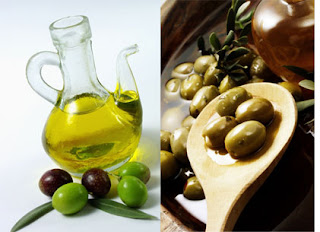
Arrive in November, proviso you obtain a coerce out keen over landscape in Tuscany otherwise the extra Central Italian regions, you would perceive people scattering parachutes roughly over the olive trees and hiking up keen on them to stripe away the mature olives with gloved hands -- additional south they in addition thump the olives movable with lengthy sticks, but then yet again the trees are a great deal bigger, too immense to create hand-stripping practical. The parachutes craft it much easier to regain the olives that fall to the ground.
So next is what? The olives are carried with difficulty off to the frantoio, or olive press, to formulate olive oil, Athena's great gift to humanity. In certainty the word "press" is rather of a misnomer -- the system is extra multifarious. To set in motion with the olives are cleanse, afterward, if the press is customary, they're ground in a stone ditch, by means of straight stone wheels that were once turned by oxen and are now mechanized.
During prehistoric days, the pulp then goes onto rush-mat disks that were piled and pressed. What came out was olive oil-and-water slurry that go hooked on a tank to divide; the initial olive oil was the greatest and habitually went to the landlord, who utilized it at table. The farmers, on the other hand, make use of some of their olive oil at table, and the relax around the farm, to stay lamps lit and whatnot.
The chief evils with the traditional pressing technique is its slothfulness: Olive oil is tremendously unpreserved, and by the time it draw to a close unscrambling in a conventional tank it has also begun to oxidize (this is why the landlord skimmed away the first olive oil, and why the farmers used much of their olive oil in lamps rather than as a condiment).
In order to easolve this problem, most up-to-the-minute presses use centrifuges to divide the olive oil from the water, and cut off the olive oil from the air as much as probable. There have also been move ahead in milling, and countless presses now have permanent feed mechanical crushers. But it's still a amazing pleasure to see a established stone wheel press rumble its way through the olive paste.
One particularly key thing about this sum total formulas that it’s conducted at room temperature. The olives are not at all heated, nor are the paste, and the paste is simply compressed No chemical treatments of any kind. or else the olive oil won't be virgin or extra virgin olive oil, the two best grades. Non-virgin olive oil is either too acidic to be virgin, or is pressed from pulp that has been procedure one way or another, and there is a insignificant differentiation in flavor.
Italians generally cook with virgin olive oil, and use extravirgin olive oil raw, in salads, drizzled into hearty soups, atop bruschetta, and wherever else the flavor of the oil complements the dish.
Non-virgin olive oils are acceptable for cooking, but you won't want to use one to dress your salad.
Comments
Post a Comment